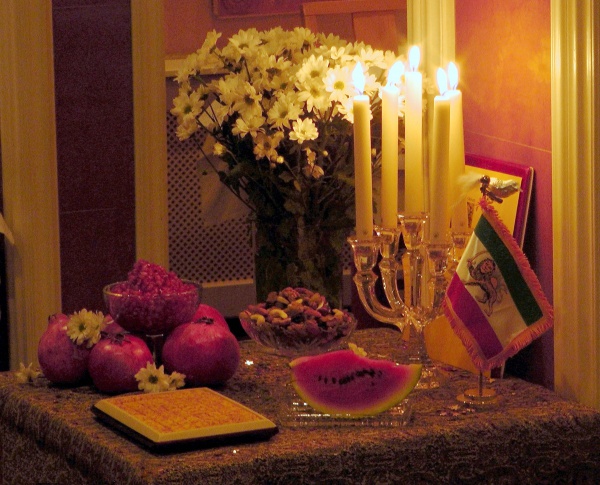Facts About Yaldā Night
Shab-e Yalda, also known as Shab-e Chelleh, is a beloved Iranian festival that marks the longest and darkest night of the year, coinciding with the winter solstice in the Northern Hemisphere. This significant night occurs on December 20th or 21st in the Gregorian calendar.
On this night, families and friends gather to enjoy good food, drink, and the timeless poetry of Hafez. Fruits such as pomegranates and watermelons, along with nuts, are integral to the celebration, symbolizing life and the promise of dawn. Recognized as a major cultural event, Shab-e Yalda has even been designated as a national treasure in Iran.
The names "Chelleh" and "Yalda" have deep historical roots connected to religious and cultural traditions. In Zoroastrian beliefs, this long night was considered inauspicious, prompting people to stay awake and gather with loved ones to ward off evil spirits. Although the customs have evolved over the years, the tradition of staying up late with family and friends endures.
Food plays a central role in contemporary celebrations. A wide variety of fruits and sweets are enjoyed, and superstitions dictate the specific foods to be consumed on this night. Activities include storytelling, divination using Hafez's poetry, drinking, and dancing. Traditionally, candles were lit, and dried fruits and nuts were exchanged as gifts. In some regions, young engaged couples also exchange gifts.
Shab-e Yalda is not just celebrated in Iran. Regions with cultural ties, such as Tajikistan and the Republic of Azerbaijan, also observe similar traditions during the 40-day Chelleh period. In places like Tabriz, special foods are prepared, and families come together to listen to stories from their elders.

 Turkey
Turkey